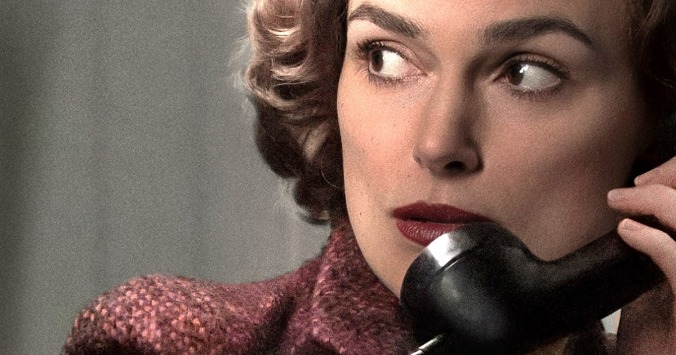Boston Strangler review: Keira Knightley tracks an infamous killer
Despite the talents of Knightley, Carrie Coon, and Chris Cooper, Hulu's true crime film adaptation never cracks the case

For decades, police procedurals were a staple of the cinematic diet. Whether ripped from the headlines or crafted solely from writers’ imaginations, viewers could count on crime dramas rooted less in mystery than the long arm of justice finally winning out—through the investigative prowess of law enforcement, crusading journalists, or both.
Ironically, as true crime has surged in the nonfiction realm, particularly on streaming platforms, single-serving cinematic treatments have waned. In typical American fashion, when viewers settle down with murder these days, it seems they’d prefer a plus-sized portion, thank you very much.
Into this space enters the admirably ambitious but hopelessly misshapen Hulu original Boston Strangler, which tells the story of reporting on the murders of 13 single women, between the ages of 19 and 85, over an 18-month period spanning 1962 to 1964. Written and directed by Matt Ruskin, the movie attempts to serve multiple narrative masters, but ends up coming across as vague and indistinct.
Loretta McLaughlin (Keira Knightley) is a lifestyle reporter for the Boston Record American with aspirations of writing something other than a review of the latest toaster. With no mentor or clear pathway for professional advancement, she’s left to passive-aggressively post, on a newsroom bulletin board, clipped articles from other papers who’ve scooped her and her colleagues.
Eventually, Loretta argues her way into covering a string of unsolved local murders on her own time. When she confirms certain shared details, the connected nature of the killings launches a media frenzy. As more murders occur, Loretta is paired with Jean Cole (Carrie Coon) by her editor Jack MacLaine (Chris Cooper). Together, the duo identify a number of suspects and connected parties, including Albert DeSalvo (David Dastmalchian), Daniel Marsh (Ryan Winkles) and George Nassar (Greg Vrotsos).
Along the way, Loretta and Jean—both married and with children, but utterly dedicated to their work—grapple with a fair amount of the garden-variety sexism of the era. They also face structural pushback from comfortably aligned power systems when their reporting reveals how a lack of interdepartmental information sharing and basic professional follow-through by police departments is impacting the trajectory (and validity) of the investigation.
Ruskin’s filmography includes the well-received Crown Heights, a biographical drama starring Lakeith Stanfield and Nnamdi Asomugha about a wrongfully convicted murderer. Here Ruskin seeks to unpack a sprawling, complicated case, and its intersection with social constructs.
On a technical level, he delivers fine. Cinematographer Ben Kutchins contributes engaging work. And the movie’s production design and costuming communicate—in their own centering of functionality and chic drabness, respectively—the oppressiveness of the way things are and friction over changing times.








































